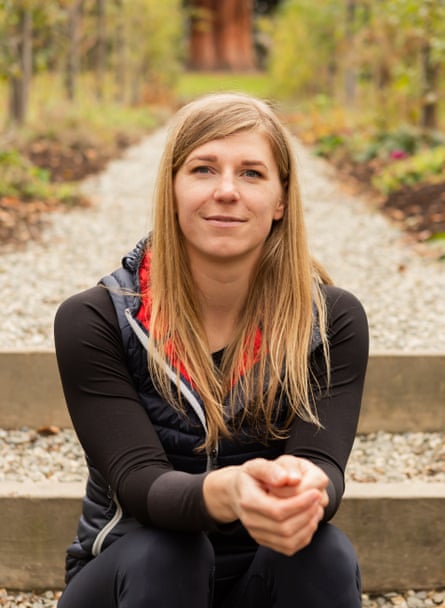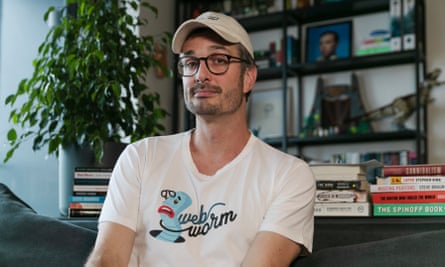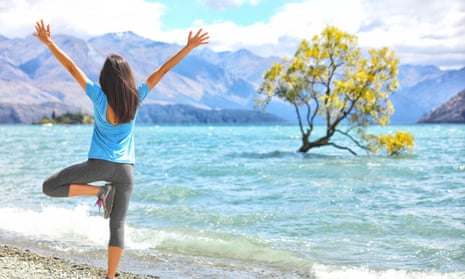Many know Wanaka, a picturesque tourist town at the foot of New Zealand’s Southern Alps, for its most famous tree.
The willow, which blooms uncannily from the glacial lake as if floating on water, represents different things for different people. For some, the miracles of a divine nature, for others, a marvel easily explained by science.
In the last several months another unlikely phenomenon has taken root among its residents.
Three weeks ago, in what many local patrons describe as a “sudden move,” three of the town’s four yoga studios simultaneously said their final namaste and closed their doors.
“The last time I went there there was nothing at the class to suggest things were changing, and then I went online to book my next class and found out I couldn’t do that,” said Judith Cullen, a local Tarras resident who had been enjoying yoga as an important part of her routine.
The three studios decided that they were unable – or unwilling – to operate under Aotearoa’s “traffic light” system, which requires teachers and students alike to be double vaccinated.
“Our studio is all about inclusion and if we can’t include everyone, we’ll include no one,” said the owner of one of the three to shut its doors.
If local vaccination rates are anything to go by, any vaccine scepticism in the town is relatively confined. According to the most recent data from the Queenstown Lakes District, more than 99% of the region is double vaccinated, putting the small minority of unvaccinated in stark relief.
New Zealand’s overall vaccination rate is now at 91% of the eligible population according to the Ministry of Health. Around 40% of workforce is covered by vaccine mandates.
Issues with vaccine hesitancy in the nation are evident elsewhere in the country. Several calls to other yoga studios around the Auckland region indicate that some have lost as much as 40% of their instructors with the introduction of the mandates.
Pilates teacher and masseuse Laura Indrane, who was instructing at one of the Wanaka studios before its closure, has started taking on clients privately in the wake of the studios’ closure.

“The vaccination rate in Wanaka and Queenstown lakes is very high and a lot of people who want to practise and keep fit may be feeling really let down,” said Indrane.
‘It’s gone wrong somewhere’
Born out of the 70s hippy movement, wellness culture has grown into a big industry in recent years both in New Zealand and around the world. The global sector is thought to be valued at $1.5tn, through the focus on optimising an individual’s physical and mental state, often by side-lining modern medicine in favour of “natural” alternatives.
For many steeped in the industry, the Covid-19 vaccine, designed by big-pharma and disseminated by mandate via big government, runs contrary to their entire belief system.
A “reactive pro-vaxxer,” Indrane worries that the idea of wellness is being distorted from its real meaning.
“I’m sad about it because I’m working in this wellness industry and I feel like people who work in wellness should promote health, but it’s gone wrong somewhere. I’m not sure where,” said Indrane.
Where exactly things went wrong may not be clear, but few can argue the powerful role that social media has had in the rise of anti-vax thought in the global wellness community.
Wedged between photos of downwards dogs, glowing chakra, and well-lit crystal balls, high traffic wellness accounts have been leaving a granola-crumb path to more sinister conspiracy theories.
“If you’re looking at yoga or wellness, you already have some pretty thriving accounts that are popular as it is. And what you find is that often it’s a subtle pivot, and sometimes a less subtle pivot, where these wellness accounts will be posting similar photos, but the captions underneath will start to include some incredibly strong anti vax rhetoric,” said journalist David Farrier, who has been investigating the rise of conspiracy theories online.
The rise of this social media disinformation was almost too much for Ursula Griffen, owner of a mindfulness company and member of New Zealand’s spiritual wellness community.

“I was seeing a lot of it on my feed. I was learning about ‘segregation’ as they were calling it, and that instilled fear in me,” said Griffen.
Despite having had vaccines her entire life and never thinking twice about it, the weight of the disinformation around the Covid-19 vaccine meant she had to spend weeks considering whether or not to get it.
Eventually science, and some helpful words from her brother overseas, brought her over the line. With help from her meditation teacher doing a sermon on radical acceptance over the car speakers, she got her vaccine at a drive through clinic in South Auckland.
“I took my beads that I got in Utah that were cedar berries for protective energy and I was just saying to myself, ‘I’m divinely protected’,” said Griffen.
“And I got the Pfizer protection too, because I believe in that as well.”
